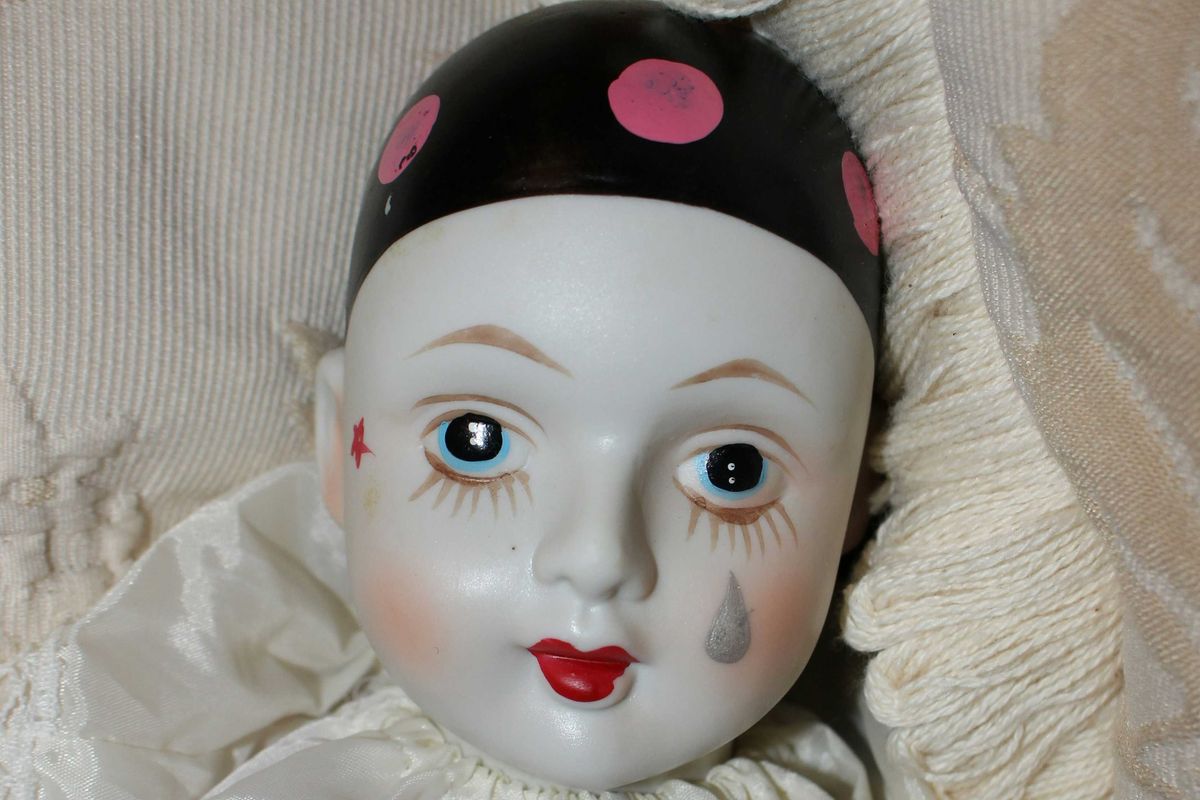After an intense, widely watched campaign, Democrat Doug Jones won Alabama's open seat in the U.S. Senate.
It's the first time a Democrat has held the spot in more than 20 years, and the victory cost Republicans a desperately needed seat just as the fight to pass major items on the GOP's agenda has become particularly heated.
Doug Jones' win was huge for Alabama — and the nation too — but as the exit poll data has emerged, it's very clear who pushed him over the line: black people, particularly black women. Nearly 97% of black women in Alabama voted for Jones. 97%!
After Jones' victory, social media erupted with messages thanking black women for once again carrying the Democratic party to victory.
While black women are rarely anyone's majority, we are united, consistent, and right on time. So come election night, we tend to be thanked profusely (then promptly forgotten about) or maligned, depending on how things turn out.
But Tuesday. Tuesday appeared to be our night:
But, hey, Steve's got a point.
While gratitude is always welcome, and appreciated, if you really want to show your appreciation for black women, do something tangible. Put another way: Show us the money.
Thank-yous and handclap emojis won't keep the lights on or help more people of color win elections. But you know what will? Cold hard cash.
Here are 15 ways to spend your money, power, time, and resources to thank black women for carrying the political load.
1. Support black women running for office.
Yard signs. Phone banks. Field work. And, most importantly, monetary donations. No black women running for office near you? No excuses. Consider contributing to Stacey Abrams, a black Democrat running for governor of Georgia.
2. Get serious about closing the wage gap.
You've likely heard the statistic that women earn 78 cents for dollar a man makes doing the same job. That's white women. Black women earn about 64 cents for every dollar. Connect with and contribute to groups like the 78 Cents Project and the National Women's Law Center, who work tirelessly to bring about change in this arena.
3. Push for fair districting and open, easy voter registration in your community.
Not only did black women in Alabama come through at the polls, they did it in spite of roadblocks put in place to disenfranchise them. Political gerrymandering, voter ID requirements, and early registration deadlines diminish the back vote. Get involved locally and on the national level with groups fighting for full voting rights for everyone. Jason Kander's Let America Vote is a great place to start.
Photo by Mario Tama/Getty Images.
4. Help fund and build a political pipeline filled with black women.
There are three black people currently serving in the U.S. Senate, including Kamala Harris, the daughter of Jamaican and Indian immigrants. We can and must do better, not just at the highest offices, but on city councils, school boards, and municipal positions. Groups like Higher Heights and the National Organization of Black Elected Legislative Women work to promote the presence of black women in all levels of government.
Photo by Drew Angerer/Getty Images.
5. Stop asking black women to work for free.
All work, even emotional and psychological labor, has dignity and deserves compensation. If you're online or in a meeting and are about to ask a black person you don't know to teach you something, share their opinion on an issue "as a black person," or ask them to explain why some other black person in the news did or didn't do something: STOP. Or at least, offer to pay them for their time. (And if you really need it, consider reaching out to the white volunteers at White Nonsense Roundup to perform that emotional labor instead.)
6. Support a living wage and the Fight for $15.
You know what else shouldn't come free? Physical labor. Even working full-time, someone earning the federal minimum wage ($7.25/hour) does not earn enough money to support themselves, let alone a small family. A living wage, $15/hour, would go a long way to pulling women of color working entry-level, retail, or food service positions out of poverty, and it could improve the health and education prospects for their children.
Photo by Mario Tama/Getty Images.
7. Volunteer or fund "get out the vote" efforts and field campaigns in 2018.
One of Doug Jones' keys to success was activating a large grassroots effort to reach out to communities of color — making calls, knocking on doors, putting billboards in neighborhoods often ignored. Some will (rightfully) argue he still could have done more and that the effort to get people of color involved in politics shouldn't happen only every few years. To those people, I say: Please open your wallet or your calendar and help out. These efforts are effective, but they take time and do not come cheap.
8. Start a monthly donation to your local NAACP.
Guess who's been doing work on the ground to mobilize black communities for a century? The NAACP. Find and fund your local unit or contribute at the national level. They've been doing the heavy lifting not just on political matters, but on education, civil rights, environmental justice, health care, and more.
NAACP national president and CEO Cornell Brooks joins the Rev. Joseph Darby and other local leaders for a news conference about the Charleston shooting. Photo by Chip Somodevilla/Getty Images.
9. Listen to black women when we talk about the issues that keep us up at night — or the issues that will bring us to the voting booth.
Statistically, if you're white in this country, you don't have a lot of black friends to listen to. No excuses. Pick up a magazine like Essence, Black Enterprise, or Ebony. Read sites like The Root, The Grio, or Very Smart Brothas. Follow black women on Twitter. (I even made you a list.) Listen, read, take notes. The black women going to the polls are not voting to save white people or the country at large; they're voting for what's best for them and their families. Maybe it's time someone asked what that looks like.
Photo by Michael B. Thomas/AFP/Getty Images.
10. Spend money at black-owned businesses.
Support black makers and entrepreneurs, authors and designers, particularly in black neighborhoods. Keeping these areas thriving and limiting gentrification will help boost black wealth; create a sense of history, place, and tradition; and keep black families together. Visit the National Black Chamber of Commerce to find black-owned businesses in your community.
11. Recruit, hire, retain, and promote black women at every level and in every industry.
Whether you're a hiring manager or an entry-level employee, you can do your part to help black women succeed at the level they deserve. You can send job announcements to black career search accounts and hashtags run by black people like @ReignyDayJobs, @WritersofColor, or @BlackFreelance1. If you're higher up in your role, ask leadership about their strategy to diversify at the senior level or what's being done to make your workplace more inclusive.

12. Stop at nothing but full enfranchisement for former felons.
A law that's more than a century old has allowed county registrars to deny the vote to thousands of former felons in Alabama, many of them black. In August, thousands of these people regained the right to vote, and many voted for the first time. Other states have not restored the vote to former felons, forever disenfranchising them well after they paid their debt to society. Find out the rules in your state and mobilize to help everyone get the right to vote.
13. Don't sit idly by when black women are disparaged, ridiculed, or made to feel less than by powerful people and corporations.
Gabby Douglas was trying to win a gold medal and people were concerned about her hair. Leslie Jones had trolls bully her off the internet. Jemele Hill was attacked by the president of the United States. And don't get me started on Dove. When things like this happen — to celebrities or regular black women in the media — speak up. Tell offenders (with your voice and wallet) that hating on black women is not OK.
Jemele Hill photo by D Dipasupil/Getty Images for Advertising Week New York.
14. Give a damn about the alarming mortality rate for black mothers.
Pregnancy and childbirth are claiming the lives of black women at a truly staggering rate. In Texas, black moms accounted for just over 11% of the births but more than 28% of pregnancy-related deaths. This is a national crisis no one is talking about. So talk about it, and ask what your doctors, nurses, and hospitals are doing to protect these vulnerable women and children.
15. Like a thing? Find a black woman doing it and put money in her pocket.
Do you like movies? Stream "Mudbound," directed by Dee Rees. Are you a foodie? Buy a cookbook written by a black woman. (May I suggest this one?). Interested in space exploration? Read this awesome book by Mae Jemison. Whatever you enjoy, black women are already there and killing it. Find them and pay them for it.

This country was built on the blood, sweat, and tears of black women.
And yet, we still haven't received the respect, power, and resources we deserve. Thank-yous will never be enough. Money will never be enough. But if a grateful nation ever hopes to make it right, they're a damn good place to start.
Photo by Stephen Morton/Getty Images.



 Each of those arms has its own brain?
Each of those arms has its own brain?
 Homemade granola bars with chocolate chips – perfect for a delicious snack!
Homemade granola bars with chocolate chips – perfect for a delicious snack! Refresh with a healthy green juice boost.
Refresh with a healthy green juice boost. Making fresh orange juice in the kitchen. 🍊
Making fresh orange juice in the kitchen. 🍊 Be careful with supplements.
Be careful with supplements.
 A man being licked by a golden retreiver.
A man being licked by a golden retreiver.  A dog's tongue close-up.
A dog's tongue close-up.  A golden retreiver getting their teeth brushed.
A golden retreiver getting their teeth brushed. 
 A white porcelain doll with a tear stain. Photo by
A white porcelain doll with a tear stain. Photo by 